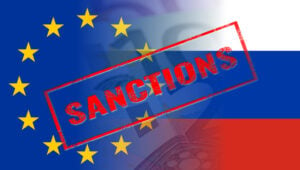55% of Ukrainians refuse to make territorial concessions – survey

Photo: UNN
Since May 2023, there has been a rise in the number of Ukrainians willing to make territorial concessions to achieve a quicker peace. However, they are a minority among those who were surveyed.
The results of the Kyiv International Institute of Sociology (KIIS) poll evidence this.
Since May 2022, sociologists have regularly surveyed Ukrainians regarding the population's readiness for territorial concessions to achieve peace and maintain independence as soon as possible. The wording of the question reads as follows: "Which of these statements regarding possible compromises to achieve peace with Russia do you agree with to a greater extent?" and respondents were asked to choose one of the following two statements:
- "To achieve peace and preserve independence as soon as possible, Ukraine can give up some of its territories";
- "Under no circumstances should Ukraine give up any of its territories, even if because of this the war will last longer and there will be threats to the preservation of independence."
Thus, in the period from May 2022 to May 2023, the situation was relatively stable:
- about 8-10% of respondents were ready for territorial concessions,
- and the absolute majority, 82-87%, consistently opposed any concessions.
After May 2023, the share of those who are ready for territorial concessions gradually increased. By the end of 2023, willingness to make concessions increased to 19%, in February 2024 to 26%, and in May 2024 to 32%.
Sociologists note that in May 2024, the survey coincided with the Russians' active offensive actions in the Kharkiv region.
Accordingly, the share of those who oppose territorial concessions steadily decreased. Nevertheless, as of May 2024, the majority of Ukrainians—55%—opposed any territorial concessions.


For reference:
The survey was conducted using telephone interviews (CATI) on a random sample of mobile phone numbers (generated randomly and subsequently statistically weighted) in controlled areas in all regions of Ukraine.
A total of 1,067 respondents were interviewed during May 16-22 among Ukrainian citizens over the age of 18 who, at the time of the interview, lived in the territory controlled by Ukraine.
The sample did not include residents of territories temporarily not controlled by Ukraine's authorities (at the same time, about 2% of each sample are Ukrainians who moved from the occupied territories), and the survey was not conducted with citizens who went abroad after February 24, 2022.
Formally, under normal circumstances, the statistical error of such a sample (with a probability of 0.95 and considering the design effect of 1.3) did not exceed 4.1% for the survey results conducted in May. KIIS notes that a specific systematic deviation is also added under war conditions.
According to previous reports, 44% of Ukrainians feel it is time to initiate official peace negotiations between Ukraine and Russia. However, 35% of those living in the rear of Ukraine do not share this belief. Meanwhile, most participants do not support the terms the Kremlin's leader, Vladimir Putin, put forth.





















































